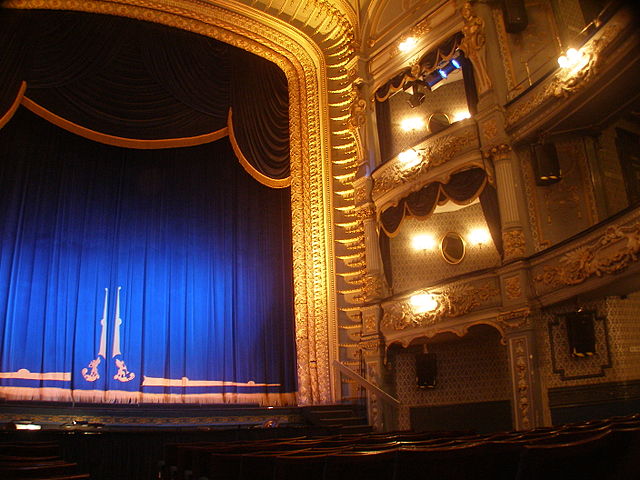 Theatre is renowned for providing an escape from the mundane everyday, by transporting audiences into a story which is nothing like their own. Stories of theatre can contain anything from the sublime to the ridiculous, but either way they are travel machines away from the world outside the theatre door. For much of the time, theatre creates an illusion for its audiences in which what is performed on stage becomes real in the minds of the audience.
Theatre is renowned for providing an escape from the mundane everyday, by transporting audiences into a story which is nothing like their own. Stories of theatre can contain anything from the sublime to the ridiculous, but either way they are travel machines away from the world outside the theatre door. For much of the time, theatre creates an illusion for its audiences in which what is performed on stage becomes real in the minds of the audience.
Even if what is portrayed on stage is based on a true story or real events, the very essence of theatre usually means that the audience are transported there too, as they are taken on a journey by the actors. What happens when the action on stage is depicting something that did once happen? The theatrical ‘suspension of disbelief’ by the audience is no longer required, as they are educated in their seats about something very real.
Current West End productions in the capital include an array of narratives: those at the fantasy end of the spectrum, such as Wicked, Cats and Charlie and the Chocolate Factory, the middle ground including The Lion King, Miss Saigon and Les Misérables, and the far end of the scale, where little fiction is added to the events which are portrayed. The Scottsboro Boys, for example, tells the story of nine black men and how they were wrongly accused of raping two white women on a train, something which is still very raw.
Other musicals which also tell stories of real events include Jersey Boys and Sunny Afternoon, about musical bands, in addition to Made In Dagenham and Stephen Ward which tell stories of strength and scandal respectively. It is interesting to consider if productions of this type have a particular effect on audiences, and how their response differs following the viewing a production of this kind.
Image courtesy of Wikimedia Commons.
